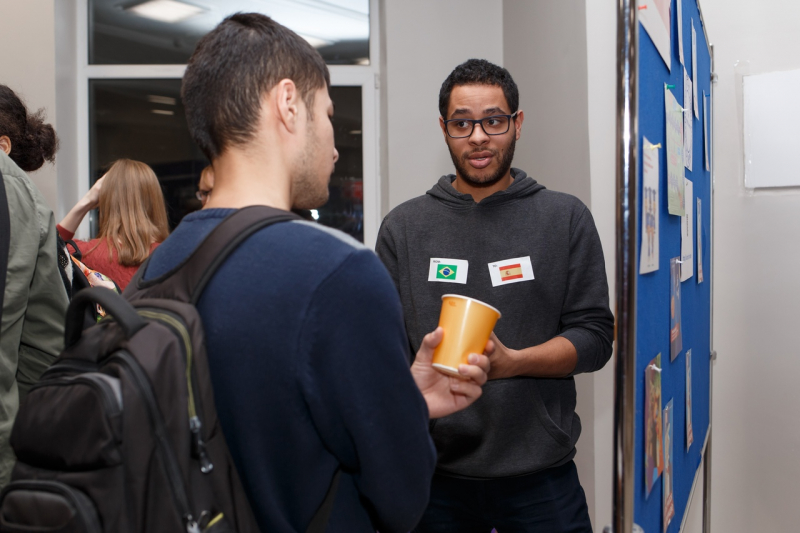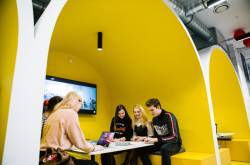The Buddy System is a part of the ITMO.STUDENTS club system. The idea of the program is to match international students coming to ITMO University with local students (buddies). The buddies meet international students at the airport, assist with the dormitory move-in and everyday issues, show them around the city, and generally help them adapt to a brand new environment.
The Buddy System leaders and members organize academic and informal events that create space for dialogue between representatives of different countries and exchange of cultural experience.
Recently, the ITMO Buddy System club has won a 400,000 ruble grant from the Federal Agency for Youth Affairs (Rosmolodezh). ITMO.NEWS reached out to Anna Gargalyk, a Master’s student at the Faculty of Biotechnologies, who has been running the club since 2018. She talked about the founding and development of the club, the benefits of being a buddy, and how leaders and members of the club cope with difficulties during the pandemic. In a Q&A session, we asked Anna about the club’s future plans, its traditions, and differences from similar communities. She also shared her impressions and advice on how to apply for a grant.
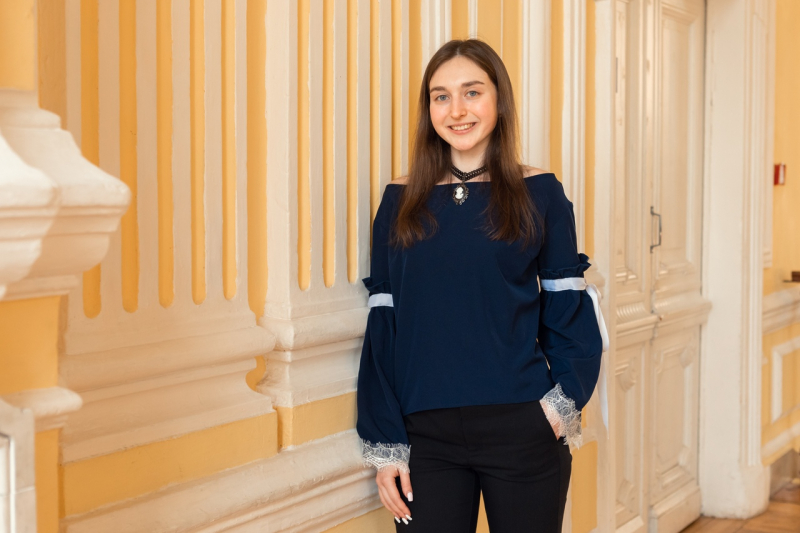
How did it all begin?
The idea of creating the club appeared in 2017. Originally, it was a namesake project that was not connected with any department at ITMO. Its founder was Meruert Nurysheva, a graduate of the Faculty of Cryogenic Engineering, who received the first grant to develop this initiative in 2018. This was one of the first grant competitions held by Rosmolodezh. In 2018-2019, together with a team of like-minded people, she managed to create and develop the Buddy System student club within ITMO University.
This spring, the club expanded its activities: now, it works not only with exchange students but also with ITMO's international Bachelor's and Master's programs.
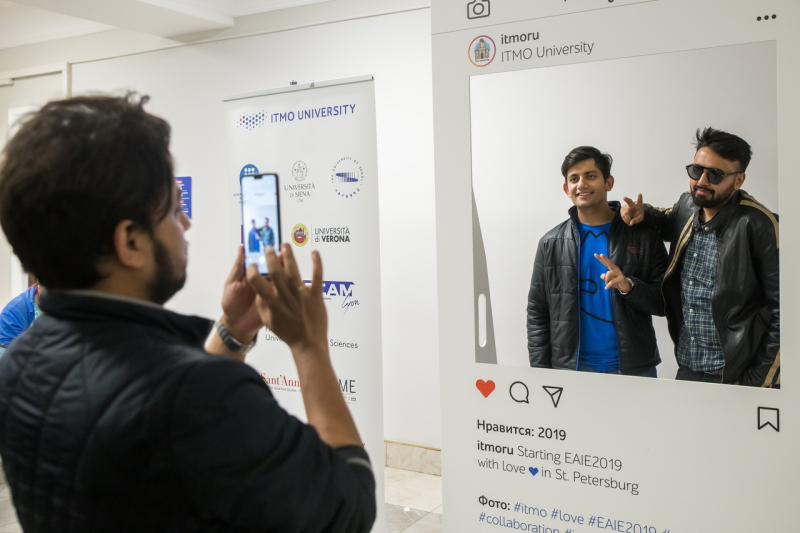
Accidents are not accidental
The current head of the club, Anna Gargalyk, at that time a 3rd-year Bachelor’s student, was inspired by the stories of her fellow students and her best friend Daria Volkova, who got into the club in its first years. Anna also decided to take part in the project in the fall of 2018. Meruert Nurysheva was just looking for people who would continue her work.
After that, Anna gradually became more and more engaged in the Buddy System, not only as a participant but also as an organizer: she helped to draw up lists and create a report on the grant. As a result, she started to manage the club’s activities and now five people are involved in the development of the club: Anna Gargalyk, Grigory Berezin, Vladimir Sashin, Meruert Nurysheva, already as a mentor, and Ksenia Strokina.
“We have formed a team of three people, which included me, Grigory Berezin and Vladimir Sashin. Vladimir is our SMM specialist and Grigory is, one might say, my deputy, because he helps me with everything. Mika (Meruert Nurysheva – Ed.) remains our mentor and Ksenia not only does the paperwork but is also a link between the Buddy System, international students, and the international department,” says Anna.
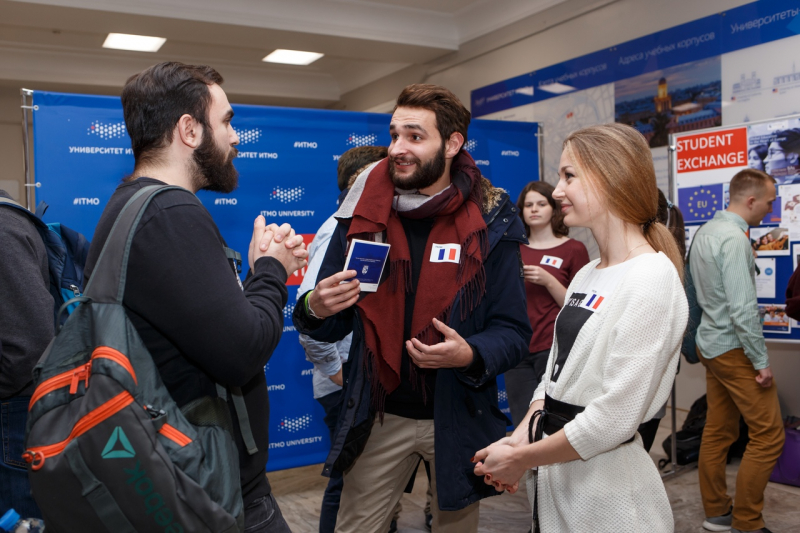
Why do students join the club?
The club allows students to meet and communicate with representatives of various countries, nationalities, and cultures, improve their English and soft skills, and go on city tours with international students.
Moreover, there are two other important bonuses: additional points for the university scholarship competition and increased chances to participate in international academic mobility programs. If a buddy student proves themselves to be a responsible person who can navigate a difficult situation and find a way out of it, the club leaders can recommend this student as a candidate for an exchange program.
“Unfortunately, very often people come and say: “we came to you only because we want to go on an exchange.” This is a little frustrating because the first people international students see when they come to St. Petersburg are their buddies,” explains Anna. “ Buddies help them with everything: they meet them on arrival, help them with settling in and migration documents, remind them about all deadlines, and assist in purchasing a SIM card; if the international student falls ill, they help to make an appointment with a doctor and so on. Of course, new students want this person to sincerely want to become their friend, and it is not fair when the “buddies” pursue their own selfish goals.”
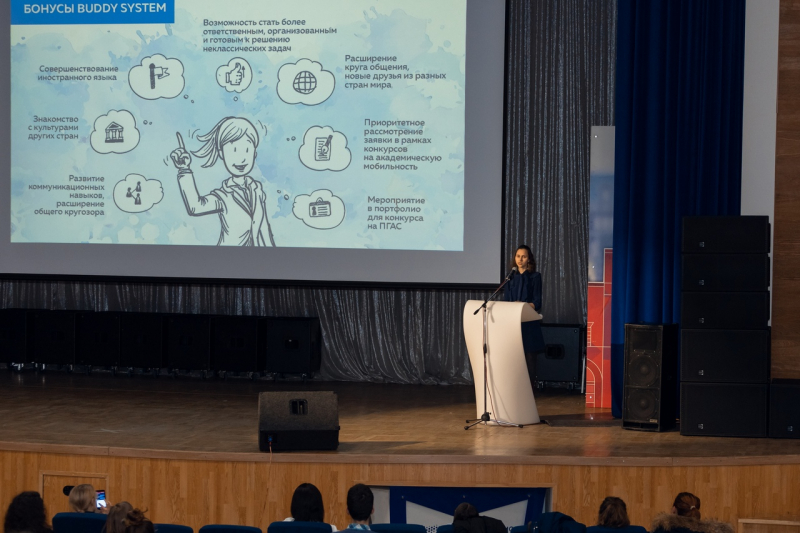
How are the buddies chosen?
“When we recruit students, we seek someone who displays more than a desire to acquire some advantages which there are certainly many”, comments Anna.
Club members – buddies for international students – are pre-selected through applications and interviews. It is necessary to speak English or another foreign language well and be a responsible, talkative, and resilient person. Also, especially with online interaction, buddies should be flexible and not be afraid to get out of their comfort zone: make a video or a broadcast. Attention is also paid to how a person handles a conversation and, in general, presents themselves. But there are also exceptions.
“Sometimes students don’t speak English very well, but at the same time, they are so active, so sociable that we understand that even with the A2 level they will be able to overfulfill all their duties. And we accept them,” notes Anna.
It happens that a person wants to be a buddy, but does not handle the interview well. We can turn a blind eye on this if the candidate speaks English or another language fluently, or, for example, organizes events. However, possible difficulties with self-presentation at the interview do not free the students from the need to be active in the future. If a buddy repeatedly refuses to help their student, this buddy can be expelled from the club and replaced with a more responsible person, because difficulties, in this case, will arise first of all for the international student.
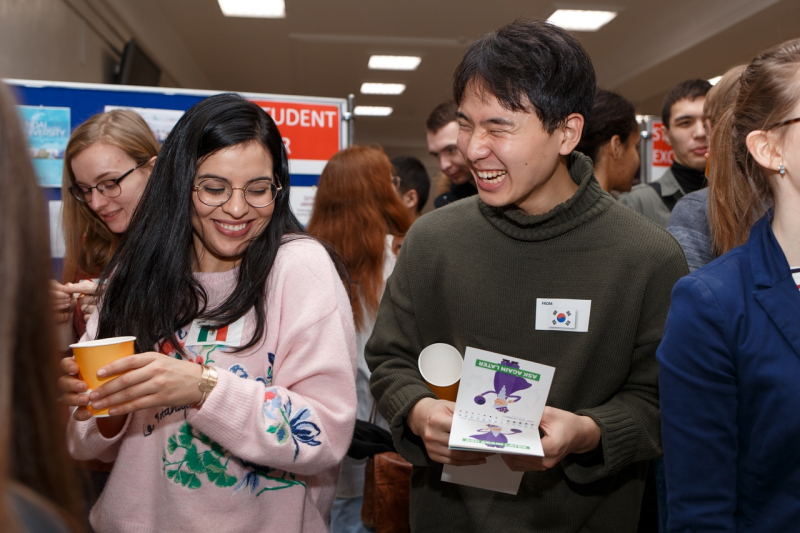
“When the students come to us, it’s their conscious choice. We tell them everything that they have to do in the course of their work. This is not a pig in a poke. In addition to responsibilities, we also indicate the advantages that they will receive, we give them lectures on how they should carry out every task. We also have a memo and even a voice assistant, that is, we did everything to make life easier for our buddies.”
The club’s membership offers not only the formal benefits but also the chance to find new friends and keep in touch with them even after they return home.
“Many buddies have found their soulmates on our project. <...> This sometimes happens even between international students. For example, there is a couple – he is from France, and she is from Germany – who found each other precisely through the Buddy system and they still keep in touch. It happens that being a buddy does not only help them but dramatically changes their life.”
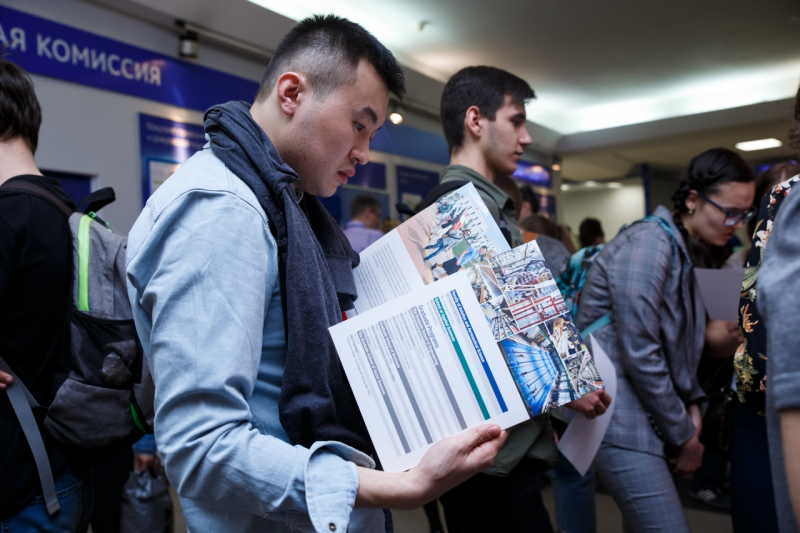
The Buddy System during the pandemic
Even though many students could not come to Russia and now study online, club leaders and buddies try to diversify their leisure time with various online activities. They come up with new formats of interaction with international students to maintain intercultural communication. They hold online national cuisine days, during which students from different countries cook together, hold quizzes, sports training, and workshops.
Q&A
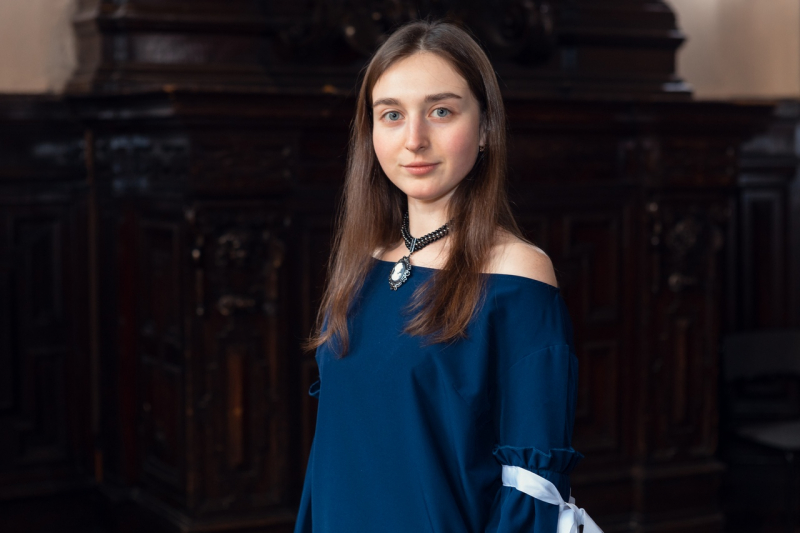
How will the club develop taking into account the grant received from Rosmolodezh?
This grant is somehow different from the one that we received before because the first grant was aimed at the Buddy System project and its development, while the new one goes further – it is an educational project. We all know about ITMO.STUDENTS – a system that includes the student union, the club system, and the student government body. This is not the case in other universities. There, all these systems still operate separately, and student clubs are scattered and disorganized. Therefore, communication is quite difficult and the workflow is more complicated.
Here, everything is much easier, because all club leaders are in one chat, we always know who to contact with a particular issue, and so on. Communication is well established. Why have other Russian universities not yet come to this? Perhaps because there is not so much accumulated experience in the transition to similar unified units. In universities abroad, this has been developing over the years and has been functioning for a long time and the transition process is much faster and smoother.
Actually, our main goal is to adopt the transition tools from our international students, so that later they can be implemented quickly by any university in our country. Then our main activity, the interaction between buddies and students, becomes a way of implementing these tools. Of course, we will carry out all the events that we hold, we will simply add educational blocks that will help us understand how all these systems are arranged at universities abroad.
And are you going to attract exchange students to this educational part?
Yes, basically, these are exchange students, because they represent a fairly wide range of countries, including European universities, where, in fact, all of this is developing most actively now.
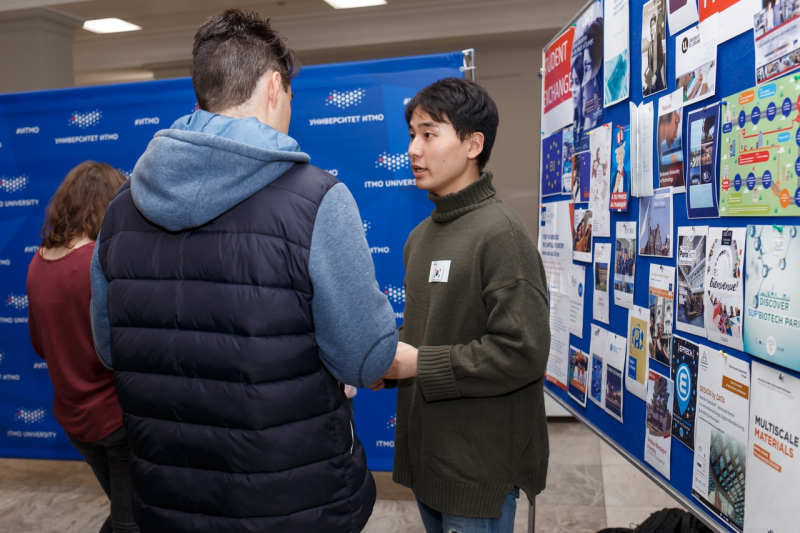
What helped you win the grant?
Probably our preparation. We have been working on grants for two years now. Rosmolodezh has guidelines for individuals, and we know them from cover to cover. When I defended my project, one of the members of the competition committee said, “It is clear that you have been working on the project for a long time.” And I stood there and thought: “Of course!” (laughs).
There are many nuances that many people who are just starting their grants miss, they think that it is not important. But in fact, the competition committee always takes into account how your project meets the standards and, of course, the knowledge of these guidelines allowed us to receive this grant.
There are many participants and the percentage of those who receive the grant is not so high. It often happens that a project can be recommended for support, however, the estimate is significantly reduced, since the experts considered that the goal of the project and the requested amount do not correlate. And in such cases, you have to think and choose what you can exclude from the project in order to fulfill all the established qualitative and quantitative indicators. This is really hard work.
Are there any unique features of your Buddy System that differ from other countries’ experiences?
Yes, for example, I'll tell you about my friend who is now studying in Denmark. They also have their own Buddy System, but their buddies don’t do their job in earnest. That is, if a buddy wants to help you, then they will, but if they don’t want to help, then you will have to solve the problem on your own. We don't have that.
We try to convey to our buddies that international students come to a new environment. You should put yourself in their shoes, how would you feel? Especially if we are talking about students from Asian countries – China, Japan, and Korea – who live in a completely different culture. They come here and for them, everything around seems new and even wild. Of course, they are just scared, because they are far outside their comfort zone and they simply need the help of their buddy.
What are the three qualities of an ideal buddy?
Open, responsible, and speaks good English.
And the non-obvious ones?
The ability to work in a team and to find a way out of stressful situations and a desire to help.
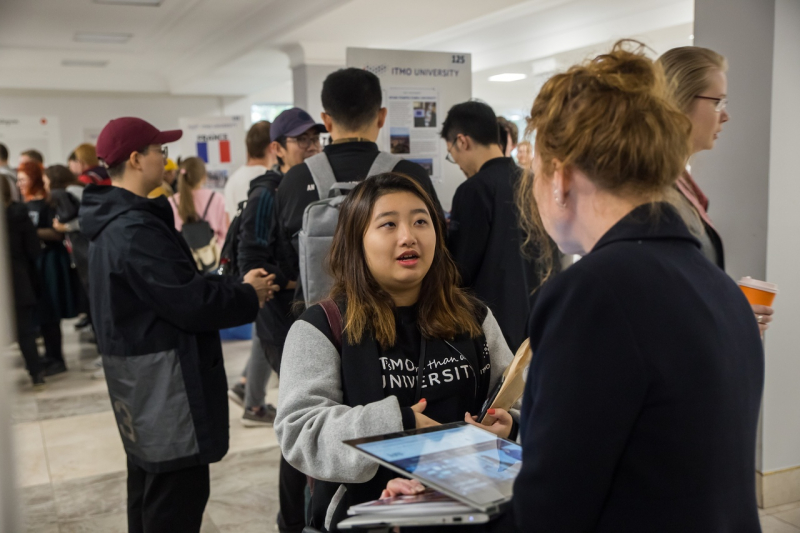
Is it possible for non-members of the club to communicate with international students and take part in your events?
You can, for sure, have a talk with international students – we don't put them in cages (laughs). They, just like all students, go to university, have lunch in the canteen, and go to the library. They are always open to new people. But our events are held only for members of the club because money for each event is provided based on the number of members currently in the club.
For example, it happens that we have vacant places, but then we attract international students from our Bachelor's or Master's programs. Of course, we also engage buddies, they always participate in events. Moreover, our social network accounts, where many online events are taking place now, are open to the public. We also hold open meetings, anyone can come and ask all their questions.
The Buddy System collaborates with other clubs, for example, this spring, there was an evening of board games with GEEKMO, a visit to an animal shelter with the Paws of Help club, and members of the ITMakeup club helped us conduct online activities during the self-isolation.
You can follow the club's news and announcements of events held by Buddy System on VK and Instagram. To join the club, you need to fill in an online application, undergo a face-to-face interview, and receive training. The contact information of its managers can be found on the club’s ITMO.STUDENTS page.
